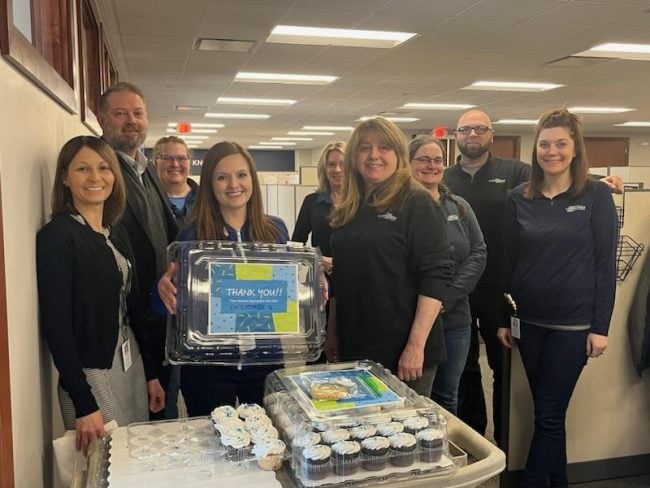This question has nothing to do with immigration law or how manywalls we need to build or even any political leanings. Thisquestion is about this very moment in time where we are living withtwo different sets of Americans: Those who feel native to Americaand those who find themselves as immigrants to America. Let meexplain.
|Typically, immigrants are those people who make the decision tomove to a foreign land and start fresh with their new ideas. It'show the United States began and continues to grow when peoplechoose to live here. However, what would happen if you never moved,but one day everything around you changed and you realized you feltlike you were living in a foreign land? Science fiction? No, it'sour reality.
|The business landscape of our country has changed dramaticallyin a short period of time and it has separated us into twodifferent countries – those who are comfortable with these changes(the natives) and those wishing for how it used to be and resistingthe new changes (the immigrants).
|One significant factor causing chaos in our credit unionlandscape is immigrant leadership in credit unions that are tryingto cater to the native members.
|Who are the natives?
|Natives are people who ubiquitously have on their mobile smartphones, carry 25 apps on it, and use the data plan more frequentlythan the talk minutes. They are not only comfortable withtechnology but demand that it be easy to use and intuitively caterto their needs. Natives embrace multi-tasking and thrive on chaos.They aren't looking for stability or the status quo. They can comein any form or age because it's the mindset that makes thedifference.
|Immigrants prefer to do things in an orderly fashion and waitfor stability to make decisions. Immigrants feel their companiesare being disrupted by economic shifts and destructive innovation(creations that harm industries such as the Internet did to thenewspaper industry) and are fearful to make bold decisions aboutthe future because they don't know what they don't know.
|Natives not only accept these disruptions as the world they livein, but they willingly adapt and drive further innovation. Nativesexpect companies to be in constant flux looking for better ways toserve them. For every immigrant that gets frustrated with yetanother software update on his computer, there is a nativethinking, “It's about time they did that.”
|As the membership of credit unions is declining, and as thatmembership is also getting older, the industry must decide if itwants to get on board with serving natives of this new economy.
|Boards of directors need to be heavily spiced with “nativethinking” to lead credit unions to compete in the new economy. Thenatives are taking over faster than you may realize. Five yearsago, the big leaders of the smart phone market were Nokia andResearch in Motion (BlackBerry). Today that is Samsung and Applewith Nokia and RIM barely in the market. Google is now entering thee-wallet business. How will that impact credit unions? Where willthe status of that change be in five years?
|Credit union directors will see this as either daunting orexhilarating, but the pressure is only going to increase to choosebetween keeping beloved nostalgic practices which may be useless inthis economy and embracing cutting-edge revolutionarypractices.
|To grow credit union membership, serve the natives, and setcredit union strategy, boards must learn what drives natives. Youlearn this by understanding how they think, taking the steps toidentify the natives in your potential membership circle, and thendeveloping a credit union culture that attracts your nativeemployees and your native members.
|I'm sure most reading this would love to have a printable recipeon how to make that happen, but this is the difference between theold world and the new world – what works for a mid-sized creditunion in Kentucky won't necessarily work for a mid-sized creditunion in Texas. It's a plan that has to be crafted specifically foryour market. Whether you find this frustrating or exciting could bea good indication if you are a native or an immigrant.
|Russell J. White is a consultant andspeaker from Lake Wylie, S.C.
Complete your profile to continue reading and get FREE access to CUTimes.com, part of your ALM digital membership.
Your access to unlimited CUTimes.com content isn’t changing.
Once you are an ALM digital member, you’ll receive:
- Critical CUTimes.com information including comprehensive product and service provider listings via the Marketplace Directory, CU Careers, resources from industry leaders, webcasts, and breaking news, analysis and more with our informative Newsletters.
- Exclusive discounts on ALM and CU Times events.
- Access to other award-winning ALM websites including Law.com and GlobeSt.com.
Already have an account? Sign In
© 2024 ALM Global, LLC, All Rights Reserved. Request academic re-use from www.copyright.com. All other uses, submit a request to [email protected]. For more information visit Asset & Logo Licensing.









